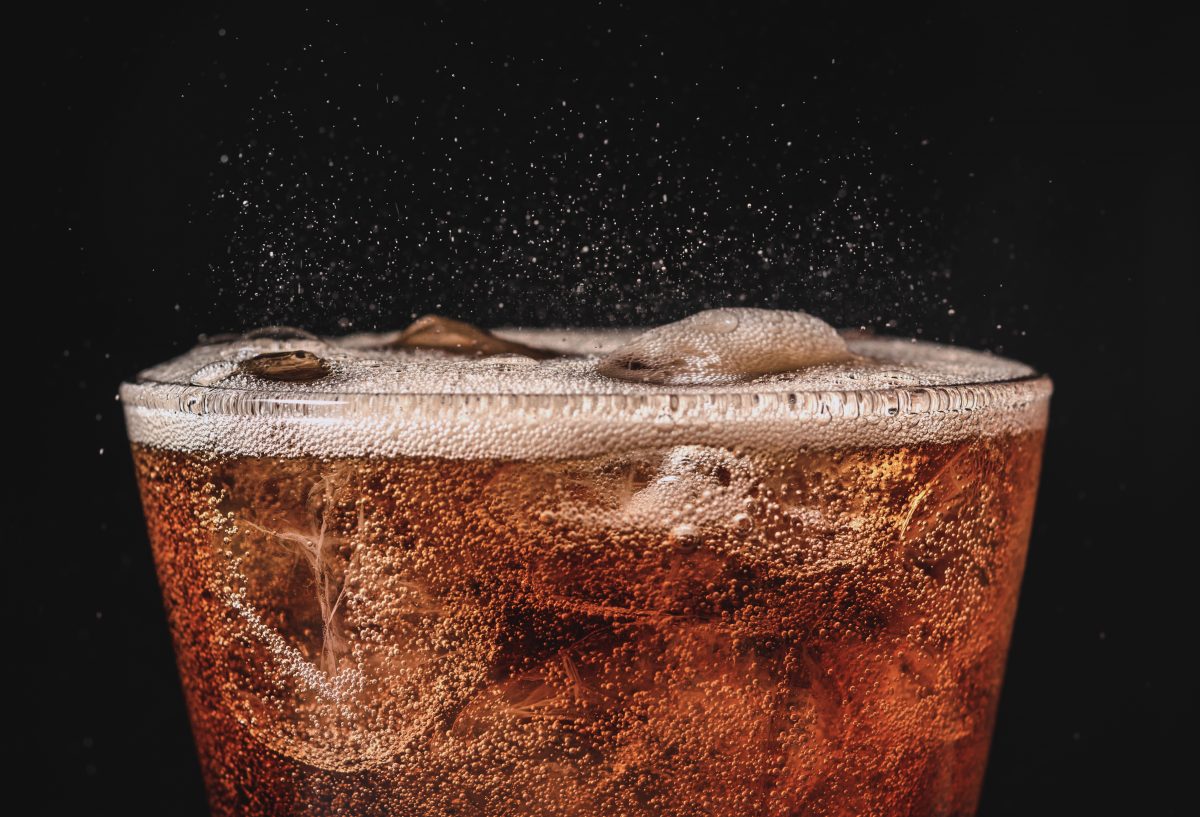Has our long national love affair with soda finally lost its fizz? According to Beverage Digest, U.S. consumption of soda is at its lowest point since 1985. The trade magazine points to a more health-conscious consumer as the reason for the decline.
Regular soda contains an abundance of added sugar.
A 20-ounce serving of soda has 15-18 teaspoons of sugar and more than 200 calories.
We call those calories “empty” because they don’t satisfy hunger, have no nutritional value and can lead to weight gain. The country’s struggle with obesity has also been linked to soda, leading to related health issues.
People who drink soda regularly have a:
- 26% greater risk of developing Type 2 diabetes, and a
- 20% greater risk of heart attack, even from drinking just one 12-ounce can per day.
In addition, when you sip on soda throughout the day, the sugar and acids from carbonation erode the enamel on your teeth, leading to decay.
So the move away from sugary sodas is good news for our nation’s general health. But plenty of people still enjoy a bubbly beverage now and then, and turn to sparkly substitutes. But are those beverages really healthier?
Diet soda
It seems like the perfect solution. Artificial sweeteners allow a soda lover to enjoy a glass of their favorite drink without all the extra sugar that hurts their health and expands their waistline.
Recent research says otherwise. Studies show that diet soda drinkers may actually gain more weight than regular soda drinkers. The theory: Even without real sugar, the body gets fooled by the sweet taste and its ability to manage calories goes out of whack. This may explain other studies that show a higher risk of high blood pressure, diabetes and heart disease among heavy diet soda drinkers.
Consensus: Okay as an occasional treat, but not recommended for regular consumption.
Flavored sparkling water
Before grabbing that refreshing fruit-flavored drink in the candy-colored can, take a look at the label to be sure there are no added sugars. The flavor in many of those drinks is derived from natural oils, which have no adverse health effects, but read the label if you’re trying to avoid artificial flavoring. Once those hurdles are cleared, you probably can enjoy your sparkling water without guilt.
Debates about health issues connected with sparkling water, club soda and seltzer do pop up periodically.
- There has been concern about tooth decay due to acidity from the carbonation process, especially when combined with acidic fruit juices.
- Some research showed that bubbly beverages cause increased production of ghrelin, the hunger hormone, and may make people eat more and gain weight.
Both are initial studies and involved high consumption.
Consensus: Fine for health. Don’t overindulge.
Club soda or seltzer
Many people don’t know the difference between these two:
- Seltzer is simply carbonated water with no added ingredients.
- Club soda is carbonated water with sodium.
For those who believe water tastes flat, these fizzy options can satisfy without any health concerns. (These are not to be confused with tonic water, which does contain sugar.)
In the last few years, home soda makers, which allow you to make all kinds of simple carbonated water, have enjoyed popularity. But beware if you use a sugar-loaded flavor packet to make your own soda — all of the warnings about excess sugar apply. If you want to try pumping up the flavor naturally, add slices of lemon, lime, orange, or cucumber.
Giving up soda
If soda is your go-to beverage, going cold turkey won’t be easy. You will miss the sugar and plain water will seem boring. A slow transition may work best, so set your new lower limit of how much soda you will drink this week, then cut back from that the following week and so on. In a few weeks, soda will be an occasional treat.
Some tips from the experts:
Switch to caffeine-free versions of your favorite soda when you begin to wean yourself from the habit. Caffeine is addictive, adding to the difficulty of quitting.
Dilute your drinks. Fill your glass halfway with soda, then add water and ice to fill. Think of it as a light spritzer.
Keep it out of the house. A refrigerator without sugary soda forces you to make a different choice to quench your thirst. Have a healthy alternative, such as iced green tea, on hand.
Keep trying water. Once you stop drinking a lot of sugary soda, your tastes may change. You’ll probably realize water does a much better job of satisfying your thirst, and it cuts down on your grocery bill.
Get more information about specific health terms, topics and conditions to better manage your health on bcbst.com. BlueCross BlueShield of Tennessee members can access wellness-related discounts on fitness products, gym memberships, healthy eating and more through Blue365®. BCBST members can also find tools and resources to help improve health and well-being by logging into BlueAccess and going to the Managing Your Health tab.






WellTuned provides inspiration and practical advice for healthy living.
WellTuned does not offer medical advice. Any personal health questions should be addressed to your doctor.